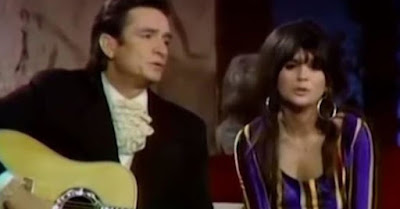or
"I've Never Understood Why Music Has To Be So Stinkin' SERIOUS"
Edgar Wright has been re-writing rules for film-making for a while now, combining fantasy with reality, comedy with action, gangster pics with musical-dance, turning genre on its cliche, combining, mingling, crunching, like splicing the DNA of film to create new life in the medium.
But, what would an Edgar Wright documentary look like?
The answer comes with his new film, The Sparks Brothers, which details the career of Ronald and Russell Mael, two brothers who have been blazing a trail in music (while never catching popular fire) for over 50 years as the band Sparks. Starting under the name Halfnelson (and changing the name after an A & R suggestion with the first album), the two have put out 25 albums since 1967, changing their band through various adjustments in style and technique that always seemed to be slightly ahead of trends from glam rock to disco to techno to art pop to house to orchestral to stripped down rock, on through the ages of videos—they were doing them before MTV was established—thanks to their early interest in film, only to see other bands emulate their sound and style and hit the pop charts.*
But, they never had that "break-through" hit. The Mael's were born in San Francisco and started their career in the U.S., but traveled to England in 1973, where they charted with the song "This Town Ain't Big Enough for Both of Us," and achieved notoriety for their TV appearances—Russell was the "cute one" while Ronald dressed like a 50 year old, sported a Hitler/Chaplin mustache, and gave off the vibe of a 30's creep/gigolo. The contrast has a bizarre ying-yang effect, not unlike Cheap Trick. As the poster for the doc says it's the story of "Your Favorite Band's Favorite Band."Part of their "never-quite-achieved-the-success-their-reputation-inspired" result may be that Sparks never took themselves too seriously, abandoning the narcissistic singer/songwriter mode of "This is my story/It's sad but true" strategy for third person narratives with a sardonic, satirical—and funny/ironic—sensibility. That trick never works—as the career of Randy Newman attests. When an A & R rep whined "Why don't you write music you can dance to?" they titled their next project "Music You Can Dance To." And when a chance-meeting led to a joint project with the Scottish group Franz Ferdinand, Ron Mael's first song submission to them was titled "Collaborations Never Work."
Music listeners/fans prefer the illusion that songs are "The Truth," and that they relate to them, as they relate to the performer. Sparks was rarely about that. They were more about experimentation and putting on a show. They attracted attention in Europe and England, not so much in America, despite appearing on Dick Clark's "American Bandstand" a few times—probably because they were articulate...and funny! They appeared as the band in the 1977 disaster film Rollercoaster, which played in theaters in "Sensurround". I wonder if the Sparks segment used it?
Wright's film has 50 years of clips to use for the film and uses them liberally, as well as a lot of talking head segments with the Brothers and fans/producers/rockers/collaborators and they're all filmed in black and white. There's abundant use of animation in various guises and Wright book-ends the film with "YouTube"-friendly segments "Frequently Asked Questions about Sparks" and—during the credits—a whimsical "Don't Trust This" "Ten Things You Don't Know About Sparks."
I loved it. I remember seeing Sparks albums coming through the radio stations I worked at and the cover art was always weird and gave you no sense of what the album was like inside. I never played them, never listened to them, and I find myself wishing I had. I was missing something and it would have thrown a different light on the music that was to become omnipresent in the years to come. The film evokes an odd sense of nostalgia for something you never experienced—although the trends in music all spring to mind when the next Sparks song is brought up with the resulting thought of "Oooh, THAT's where THAT came from...."
It is smart, ironic, and celebratory. So much so that one is disappointed to see it end. One hopes that, like the group it lionizes, it can go on forever, running just ahead of fame and idolatry, but never losing the energy (in whatever forms it takes) that keeps it running through the decades, as per the Mael Brothers, now in their 70's.
They've just collaborated with Leo Carax (which is perfect) on his first feature film (starring Adam Driver and Marion Cotillard) since Holy Motors that's coming out this Summer.** What will THAT look/sound like? Can't wait to find out.
* Oh gosh, there are so many comparisons—Queen (they opened for Sparks in one marquee photo), Human League, Pet Shop Boys, Devo, B-52's, Depeche Mode and on and on. Paul McCartney dressed up as Ronald in his "Paul portrays everybody" video of "Coming Up" in 1980.
** Their interest in film-making and their bizarre outlook led to almost collaborations with Jacques Tati and Tim Burton (on a musical version of "Mai, the Psychic Girl") but neither one came to fruition.











